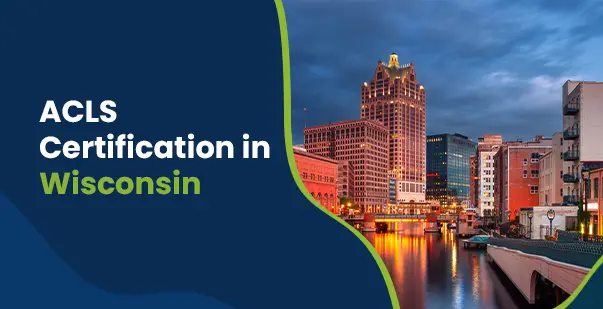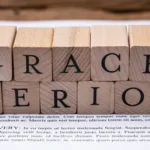Consider you are working the night shift at a Milwaukee hospital when a patient suddenly goes into cardiac arrest. Your team springs into action, but you’re the one who needs to lead the code blue. Would you know exactly what to do?
According to the Medical College of Wisconsin, over 6,500 deaths occur due to cardiac arrest each year in Wisconsin, with survival rates sitting at just 10% statewide. These emergencies require advanced cardiac life support (ACLS) to be initiated within seconds. Therefore, more healthcare professionals are required to be skilled with an ACLS certification in Wisconsin. If you’re ready to step up and become that critical lifeline, let’s walk through everything you need to know about the ACLS course in Wisconsin.
Master ACLS Now
Get ACLS certified with confidence
Is ACLS Certification Required in Wisconsin?
While Wisconsin doesn’t mandate ACLS certification by state law for all healthcare workers, most employers in critical care settings make it a non-negotiable requirement. The certification is like your professional passport to emergency care roles.
Here’s who actually needs ACLS training in Wisconsin:
- Emergency department and ICU nurses
- Paramedics and EMTs in advanced roles
- Respiratory therapists
- Physicians and physician assistants
- Pharmacists in hospital settings
- Nurse practitioners and certified nurse anesthetists
Wisconsin’s EMS regulations require basic life support (BLS) training for entry-level positions, but if you want to advance or work in leadership roles, ACLS certification becomes essential. Major health systems often list ACLS as a job requirement before you even apply.
| Read More: ACLS Certification North Dakota |
How to Get ACLS Certified in Wisconsin: Step-by-Step Process
Given the importance of having an ACLS certification in Wisconsin, healthcare professionals often look for the right steps to follow before getting certified. They must weigh several aspects before finalizing the course provider. So, here’s a complete step-by-step breakdown for you to follow:
Step 1. Secure Your BLS Foundation
Before diving into ACLS, make sure your BLS skills are current.. Many Wisconsin training centers won’t let you participate without a valid BLS Provider card, so renew it first if it’s expired or close to expiring.
Step 2. Verify Your Eligibility and Employer Standards
ACLS training suits most healthcare professionals, but confirm your employer’s requirements. Some Wisconsin hospitals may need recent clinical experience or certain licenses. Ensure the course you choose meets their standards.
Step 3. Find a Reputable Training Provider
You must search for AHA authorized training providers in Wisconsin. Find a reliable online training provider to help you learn on the go.
Step 4. Complete Pre-Course Requirements
Most courses of AHA ACLS in Wisconsin require pre-course preparation. This usually includes reading assignments, online modules, and self-assessments. They cover ECG interpretation, pharmacology, and ACLS algorithms.
Step 5. Study Life-Saving Skills
Learn real-world application of cardiac arrest management, arrhythmia recognition, stroke protocols, advanced airway techniques, and team leadership..
Step 6. Pass Both Written and Practical Evaluations
To earn your provider card, you must take a quiz and obtain a minimum of 70% to pass successfully.
Step 7. Receive and Protect Your Certification
Upon successful completion, you’ll receive an official ACLS provider card in digital form with a printable backup. This card shows your issue date and expiration.
Read More: ACLS Certification Colorado
How Long Is ACLS Certification Valid in Wisconsin?
Your ACLS certification remains valid for exactly two years from the issue date, regardless of where in Wisconsin (or the country) you earned it.
Many Wisconsin professionals schedule their ACLS renewal in Wisconsin 2-3 months before expiration. This buffer protects against scheduling conflicts and ensures continuous compliance.
Read More: ACLS Certification Texas
Cost of ACLS Certification in Wisconsin
When you know the financial investment required to complete an ACLS certification in Wisconsin, you can plan the budget accordingly and choose the right option wisely. Here’s what you can expect to pay for ACLS training in Wisconsin:
| Format | Price Range | What’s Included | Additional Notes |
| In-Person Training | $225 – $350 | Instructor-led class, equipment use, skills evaluation | Initial certification typically costs more than renewal |
| Blended Learning | $240 – $320 | Online coursework + local skills verification | Popular with working professionals |
| Fully Online | $120 – $220 | Digital modules, online exam | Verify employer acceptance before enrolling |
| Study Materials | $45 – $70 | ACLS provider manual, reference guides | Sometimes included in course fees |
Remember that cheaper isn’t always better. Make sure any online ACLS in Wisconsin program you choose meets your employer’s standards and provides the depth of training you need for real emergencies.
Why Choose ACLSNOW.com for ACLS Certification in Wisconsin?
When cardiac emergencies strike in Wisconsin’s hospitals and clinics, you need training that translates directly to lifesaving action. ACLSNow.com delivers comprehensive ACLS certification that combines convenience with clinical excellence. The following reasons will help you decide why you should choose us:
Expert-Developed, Self-Paced Learning
Our program covers 17 detailed chapters spanning advanced airway management, ACLS algorithms, pharmacology, and team dynamics. Our course is created by certified professionals. Most Wisconsin healthcare providers complete the entire course in 3-4 hours. However, as it is a self-paced course, you can start, pause, and resume anytime.
Bonus BLS Training Included
Every ACLS enrollment includes a complimentary Basic Life Support course. This ensures your foundation skills stay sharp while maximizing your training investment. Both certifications maintain the same high standards expected by Wisconsin healthcare employers.
Real-World Application Focus
Although the course is delivered online, our training emphasizes practical scenarios you’ll encounter in Wisconsin healthcare settings. Work through cardiac arrest algorithms, acute coronary syndrome protocols, stroke management, and team leadership challenges that prepare you for actual emergencies.
Immediately Recognized Certification
Graduates earn a two-year ACLS certification that meets Emergency Cardiovascular Care guidelines. Your digital card is available immediately after passing the exam (with unlimited attempts), and we can mail a physical copy if needed. No waiting weeks for paperwork when you need proof of certification right away.
Transparent, Value-Driven Pricing
At $119, our program offers exceptional value without hidden fees. All costs are clearly outlined upfront, including any optional materials like provider manuals, online resources or reference guides.
Read more: ACLS: What Does ROSC Mean?
Take Action and Get Your ACLS Certification Today!
Wisconsin’s healthcare system needs skilled professionals ready to respond when cardiac emergencies strike. The survival rates depend heavily on immediate, expert intervention, which makes ACLS training not just professional development, but a commitment to saving lives.
Don’t wait until your current certification expires or a real emergency tests your readiness. Choose a reputable ACLS certification in Wisconsin, and ensure your credentials stay current. Your patients, colleagues, and professional growth all depend on the advanced skills only quality ACLS training provides. Ready to make a difference? Your journey to ACLS certification starts with a single decision to act.







